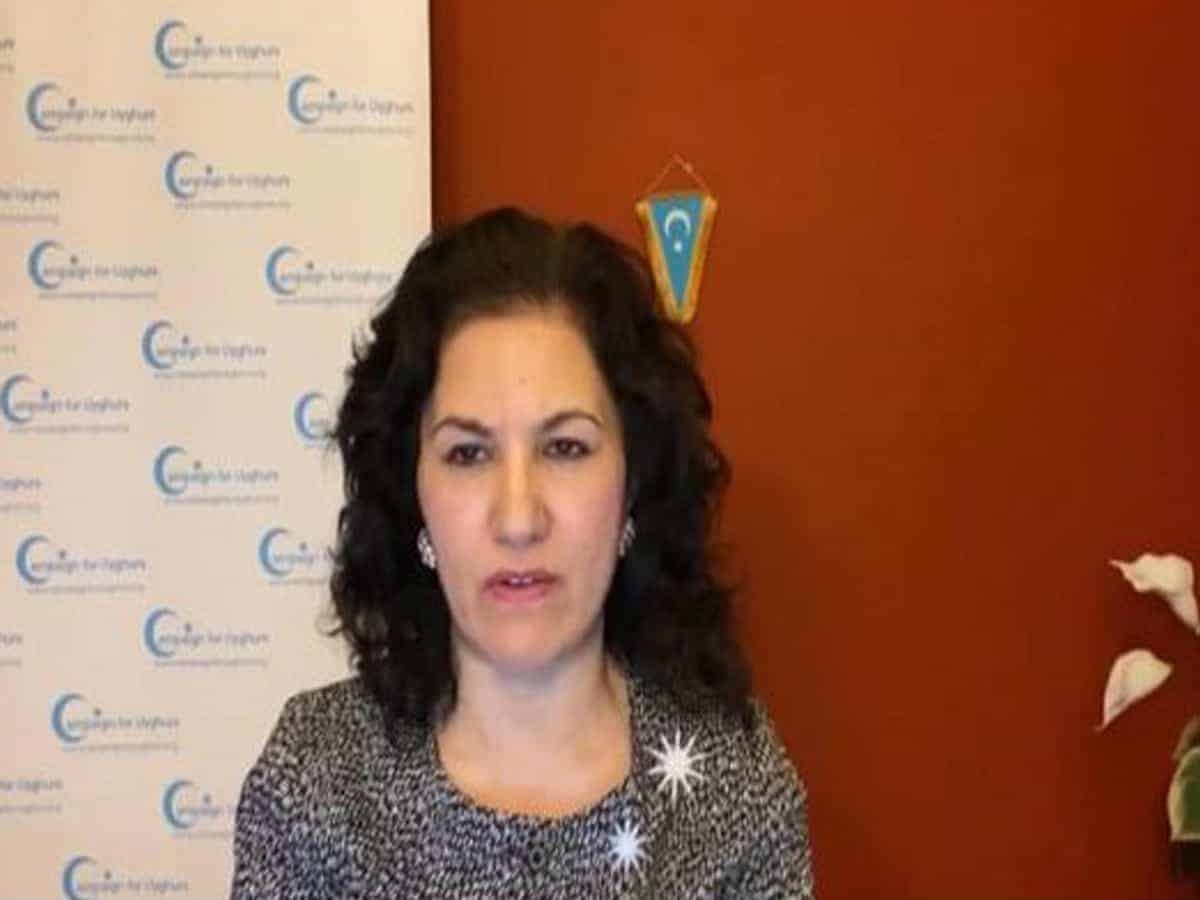Washington: Rushan Abbas, an Uyghur American activist, has disclosed the inhumane treatment meted out to Muslim Uyghurs in Xinjiang province by the Chinese regime, saying that women are subjected to mental and physical torture, and are given unknown injections, and medications.
Abbas, whose sister went missing in China almost two years ago and is believed to be locked in a detention camp, said the world is unaware of the lies of Chinese regime because it tightly controls information flow.
“My sister disappeared in September of 2018, six days after I spoke out on a panel regarding the disappearance of my husband’s entire family. I have tried for two years to get proof of life, without any progress,” Middle East Monitor quoted Executive Director of Campaign for Uyghurs, Rushan Abbas as saying.
The activist’s sister, Gulshan Abbas, is a retired Uyghur medical doctor and mother who went missing two years ago.
“It is a constant struggle, especially for my nieces, to live normally with the weight of this burden. And yet, this is the same struggle that all Uyghurs have”
she said
“Most people are largely unaware of just how many lies the Chinese regime gets away with because they so tightly control information. They find it unbelievable because they aren’t living in a similar system and don’t understand the realities of how barbaric a seemingly modern country like China actually is,” she added.
Rushan, who was born in the capital of Xinjiang in Urumqi, moved to the United States and attended Washington State University in 1989 where she pursued studies in Plant Pathology. She became a vocal activist and advocate for the human rights of Uyghurs.
On September 5, 2018, Rushan Abbas participated in a panel discussion named “China’s ‘War on Terrorism’ and the Xinjiang Emergency”. She talked about the fate of her in-laws and conditions of China’s camps. Six days later, Rushan’s sister and aunt were detained by the Chinese government as retaliation for her speech at Hudson Institute.
To discover what her missing sister may be going through, Rushan has interviewed former camp inmates who told her chilling details of the detention centres, including survivor Zumret Dawut, who last year testified that she was forced to undergo permanent sterilisation surgery.
In April 2018, Dawut, a mother of three, was detained at an internment camp where she was forced to recite Chinese propaganda, beaten for providing food to an ailing fellow prisoner, and injected with unknown drugs, according to her account at a UN event.
Prisoners are shackled 24-hours a day, she added.
This is a strikingly different picture to the one-China has painted, claiming that the camps provide ‘vocational training’ and that prisoners can leave at any time.
“Women talk about seeing other women taken away to be gang-raped. They describe mental torture, physical torture, being given unknown injections, and medications. They describe being mocked for their faith as they are required to verbally worship [Chinese President] Xi Jinping and the [Chinese Communist Party] CCP before being given meagre rations of food,” explains Rashun.
“It’s hard to even grasp how these things can be happening in the modern age. Each time I listen to their horrific stories I picture my sister going through the same, or worse. With her delicate health, it’s very difficult to imagine how she could go through such things,” she added.

